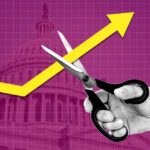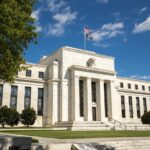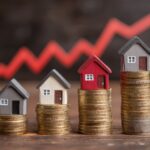Jan Hatzius, the Chief Economist at Goldman Sachs, has echoed the warning that a decline in residential investment in the second half of the year could potentially jeopardize U.S. economic expansion. In a new report, Hatzius predicted that residential investment—which includes expenditures on new home building and renovations—will fall by 8% annually, pointing to issues with affordability and a reduction in immigration as major causes of the housing market’s ongoing downturn. He added that more proof that affordability is still a major concern for purchasers comes from the growing usage of mortgage buydowns to reduce rates.
Hatzius cautioned that reducing immigration is expected to limit the creation of new households, which in turn reduces housing demand, particularly if the Trump administration steps up measures to stop illegal border crossings.
He also noted that housing trends could be further impacted by any labor market downturn, which is already indicated by recent disappointing job data. According to his analysis, new single-family starts will slow down and multifamily homebuilding will stay muted through December.
Experts Weigh in Further on U.S. Economic Forecast
The belief held by a large number of other economists is that housing market downturn may increase economic headwinds and act as a leading indicator of a recession. Moody’s Chief Economist, Mark Zandi, has recently also cautioned about the wider consequences of housing market volatility. He contended that the industry is at risk due to ongoing problems in both sales and development, which are exacerbated by high mortgage rates.
Zandi claims that unless mortgage rates drastically decline from their current levels, which are close to 7%, housing values, construction, and sales would probably continue to decline, further taxing an already fragile economy. He has further intensified his prediction, writing on X that he now thinks the situation has changed from a “yellow flare” to a “red flare”—a straightforward warning that problems could soon affect not only homebuyers and sellers but also the overall economy.
“Home sales, homebuilding, and even house prices are set to slump unless mortgage rates decline materially from their current near 7% soon. That, however, seems unlikely,” Zandi wrote in an X post.
From first-time buyers looking for starting houses to elderly homeowners seeking to downsize, he added, the consistently high mortgage rate has become a major obstacle for almost everyone in the market.
Thirty-year mortgage rates have been in the range of 6.60% to 7.04% since January 2025, according to Zandi. In previous decades, mortgage rates were occasionally higher, but this was counterbalanced by significantly lower property prices. Zandi pointed out that the pool of qualified purchasers is significantly reduced by the current combination of high rates and expensive prices.
The Effects of Declining Home Prices & Recession Likelihood
Given that housing activity usually has a significant impact on consumer confidence, labor market trends, and other related areas of the economy, he has increased the likelihood of a U.S. recession within the next year and warned that a faltering housing sector could quickly turn into a “full-blown headwind” for growth.
The predictive impact of residential investment is also emphasized by historical and scholarly research. One of the “quintessential leading indicators” of a recession, according to economists, is housing. Because of the industry’s links to consumer spending, construction jobs, and the need for products related to home purchases, declines in residential investment frequently occur before more general downturns.
According to Citi and Pantheon Macroeconomics analysis, for instance, a prolonged decline in property prices would probably result in a significant enough drag on consumer spending to make a recession a real possibility. The demand for furniture, appliances, and other home-related items tends to decline along with realtor and builder activity during housing downturns, which can potentially have a cascading effect on the economy.
This concept is supported by previous cycles. Since residential investment peaked before the wider downturn occurred, the collapse of the housing sector during the Great Recession was crucial to both the financial crisis and the subsequent loss of broader economic activity.
According to more recent estimates by the Congressional Research Service and the Federal Reserve, economists are keeping a careful eye on sustained drops in residential investment as potential signs of a recession, particularly following a run of consecutive quarterly declines.
To read more, click here.






